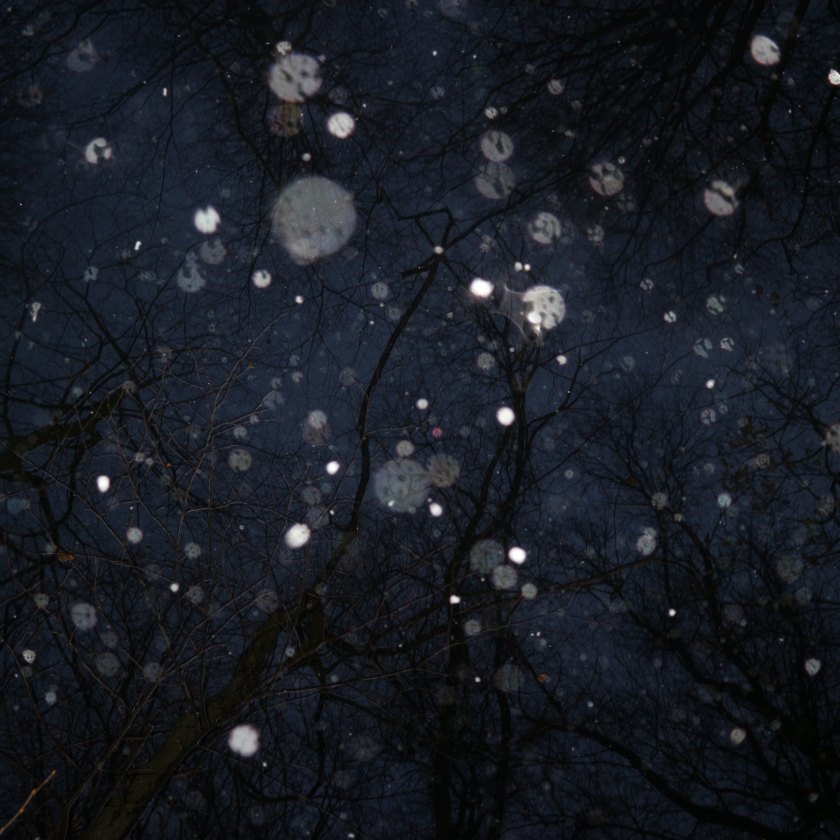
Man is alone in life. He’s alone in his cradle as he’ll be alone on his deadbeat; he’s alone in love…
—Michel de Ghelderode, Stealing from Death (translated by George MacLennan)
Alone in a house, on a bus, in the middle of a field. Alone in a room.
Alone in your efforts, in your struggle, in your pain.
Yet, somehow alone does not mean swimming in a sea of silent nothingness. On the contrary, barring meditative states, it means alone with your thoughts. And the nonsense that swills around in there, between Willing the Future and Judging the Past, can be quite an imaginatively torturous pandemonium—a stampeding herd of dinosaurs makes less of a fuss.
It had been raining since dawn. Damp had made my room as foul-smelling as a cave and its light was really that of a crypt where I was moldering, looking at tears streaming down the window and feeling that I was gradually swelling up with water absorbed through my pores. It seemed that this rain would last forever. I was surrounded by a pervasive odor of old scrapheaps and, since everything smelled, my body emitted the smell that tramps carry in their rags. My thoughts, like a bottle imp, slowly sank under the pressure of the opaque sky. And this inexorable descent into the void constituted a palpable but unspeakably horrible torture. It is conceivable that a man in a room, unmoving and apparently impressive, could stand to feel his soul smothered without groaning, writhing, or praying?
(From the story Fog)

Writing about the lives of solitary people doesn’t generally make for popular literature. Plot is hard to set up with one person; exterior dialogue is lacking; interior dialogue is called interior monologue and it’s a disordered mess. The results tend to wearisome ramblings.
Michel de Ghelderode, in his 1941 short story collection Spells, resists this tendency in two ways: he harnesses disquieting topics that inherently inspire curiosity (mannequins, magic of twilight, decay, devil, death) and he allows himself one, at most two, other interesting characters who prop up his solitary narrator. So equipped he pits his protagonists against that interior herd of dinosaurs and sees what emerges from the fray.
Twilight fell on the countryside. Landscapes fled by and horses fled in reverse across the landscape. I closed my eyes on the image of horses fleeing through smoke or through foam. I was fleeing too, and I tried to remember why. The police, a woman, an enemy, the demon? No, the drama was simpler than that; I was only fleeing myself. It happens to everyone at least once to get sick of himself, of meeting his own face in the mirror. A perilous moment, because so clear is the mirror and so frozen the face that the time to flee has come; for it can explode, that culminating moment, and blow to bits both the human head and the mirror that contains it.
(From the eponymous story Spells)

Gheldrode was an avant guard Belgian dramatist writing in French. Spells is an outlier in his oeuvre, especially as his fantastic stories are distinctly non-theatric with the majority of their “action” unspooling inside the narrator’s head. However, he does employ a dramatic mechanism to enliven the somber proceedings without losing the sense of solitude: Death shows up as a rotting seaman, a wax mannequin comes to life, the Devil lives in London, minor demons float around in jars, statues of saints aren’t as implacable as we assume.
That’s not to imply that the other-worldly cannot provide a fully embodied cast of characters—and it often does, think Faust’s Mephistopheles—but within the space of a short story any personification of the Devil, no matter how original, will trail a long cloud of cultural associations. The writer has to contend with this cloud and use it, rather than try to disperse it. In that sense, the Devil won’t ever be seen the same way as Jared the grocer or Sally the businesswoman, and will instead provide a phenomenon half-way between a full character and a philosophical concept. Solitude lives on philosophy, so such interlocutors are ideal to break the circularity of a navel-gazing soliloquy without introducing another person.
Alone can be a dangerous place, but like Gheldrode says, Alone is the only home we are guaranteed in this life. There’s nowhere to run.
But.
But if it gets too lonely or too loud in Alone, you can always try writing stories about it. If you can’t run, you can at least let your imagination fly wild. The sky is endless.

P.S. (Spoiler alert)
Gheldrode’s stories contain a couple of the more original reversals of the standard devil story. My favourite is Rhotomago, named after an imp floating about in a jar on the narrator’s shelf. When the imp shows a desire to escape his confinement, Gheldrode’s narrator frees him—willingly! The imp inflates into a full-sized red demon, Rhotomago, and offers to fulfil a wish.
The narrator wants nothing.
Rhotomago, surprised, hurt, stuttering, offers to at least foretell the future. The narrator counters that the future is no good if you don’t know the past, so he requests that the imp start by recounting the history of the world, specifically “You can begin with the fall of the rebel angels!” Rhotomago goes silent, revealed for the fake that he is, and retreats, shrinking, from the narrator’s mounting anger, until he’s small enough to return to his jar.
I can’t imagine many people haranguing a demon back into his primordial state.
(Ray Bradbury’s 1944 short story the Jar is a rather more disturbing and open-ended, if less dramatic, take on this theme.)
The sudden energy-burst from the narrator and the reversal of fortunes exhibited in Rotomago occur on a micro level elsewhere in the collection. In Spells, the eponymous short story, a crone badgers the narrator to buy a face.
“Buy a face!”
…
“Sell me yours,” I said.
Whether you understand that literally or metaphorically, putting on someone else’s face is impossible, as is stepping into someone else’s Alone. Not even the demon can escape his jar.

This post is part of series on the fantastic grotesque.
- Judging a Book by its Quirk Words: on Léon Bloy’s Tarantula’s Parlour and Other Unkind Tales (1893–4).
- Diabolical Framings: on Jules Barbey’s Diaboliques (1874).
- Urns as Hearts: on Jean Lorrain’s Soul-Drinker (1890s).
- Alone (With Only Your Demons for Company)
Often I don’t always finish your posts because one line or phrase sets my tiny mind a jiggling. Ten years in a Pentecostal school because I needed a job and this line hit me – “the Devil won’t ever be seen the same way as a phenomenon half-way between a full character and a philosophical concept”
That sums up one of the fights I maintained with the School for all of the ten years. I am going to use it if I may.
LikeLiked by 1 person
That’s what the posts are here for: reading, yes, but also sparking ideas that others can use (the best possible option).
As for the Devil line, just to get it straight, the “quote” is actually the opposite of what you cited (your copy paste probably went awry and the meaning is what you think it is):
“The Devil
[won’t ever be seen the same way as Jared the grocer or Sally the businesswoman, and]will instead provide a phenomenon half-way between a full character and a philosophical concept.”But I didn’t think you meant to use the quote literally? In which cause, of course I’m glad it got you thinking and you can use the notion as a springboard for your story. Looking forward to reading it!
LikeLike
I like the articles! Very informative!
LikeLiked by 1 person
Cool—thanks for letting me know 🙂
LikeLiked by 1 person
Welcome! A lot to learn here! 😊
LikeLiked by 1 person